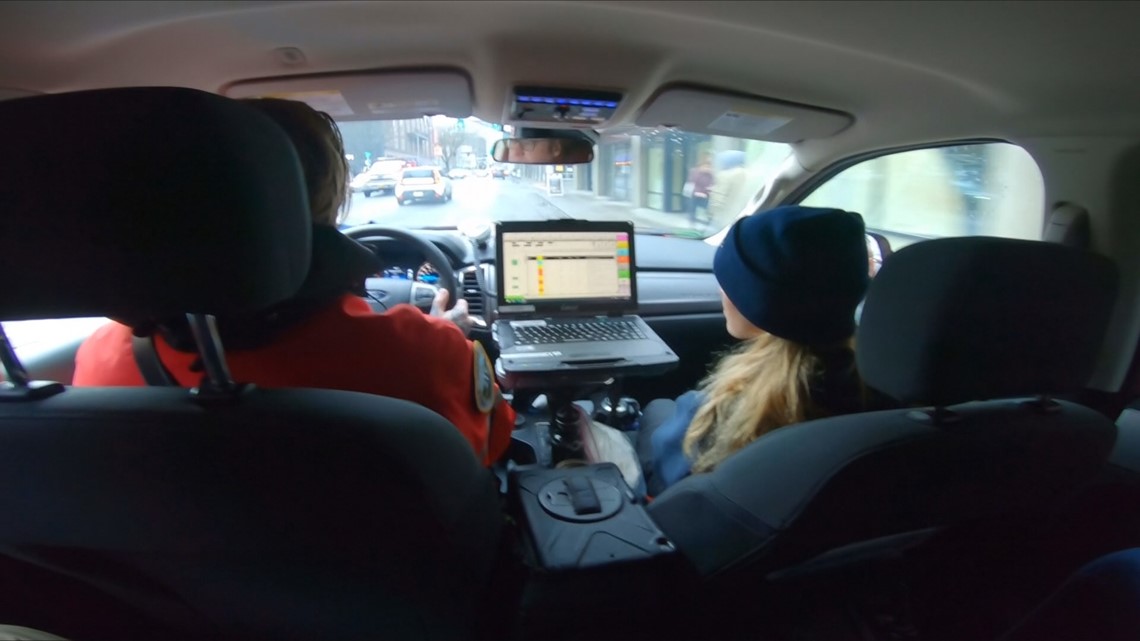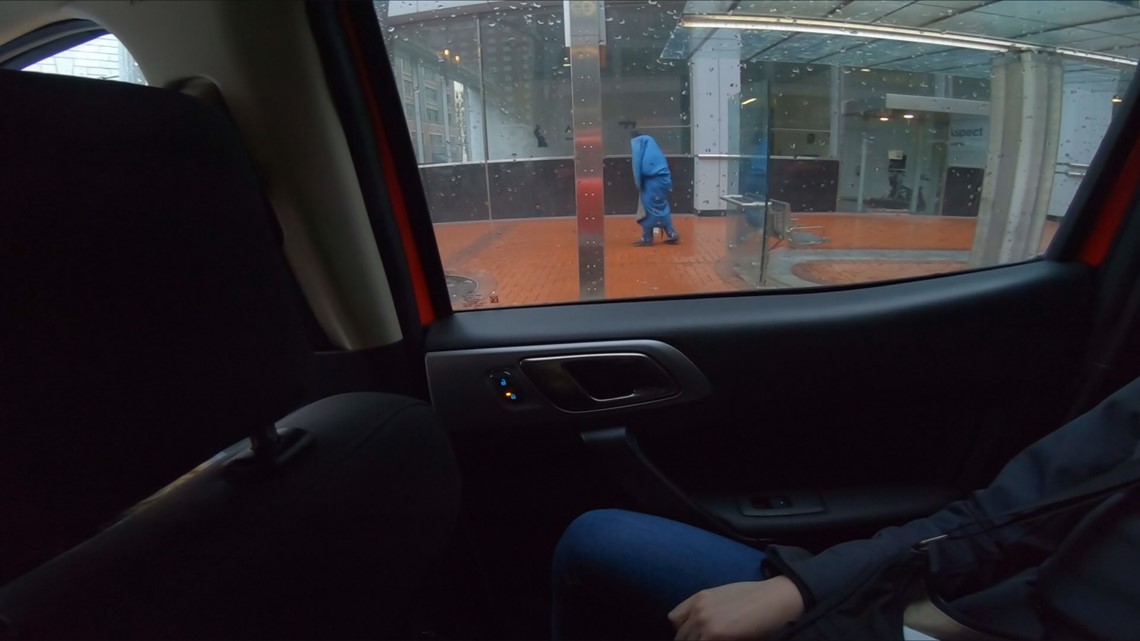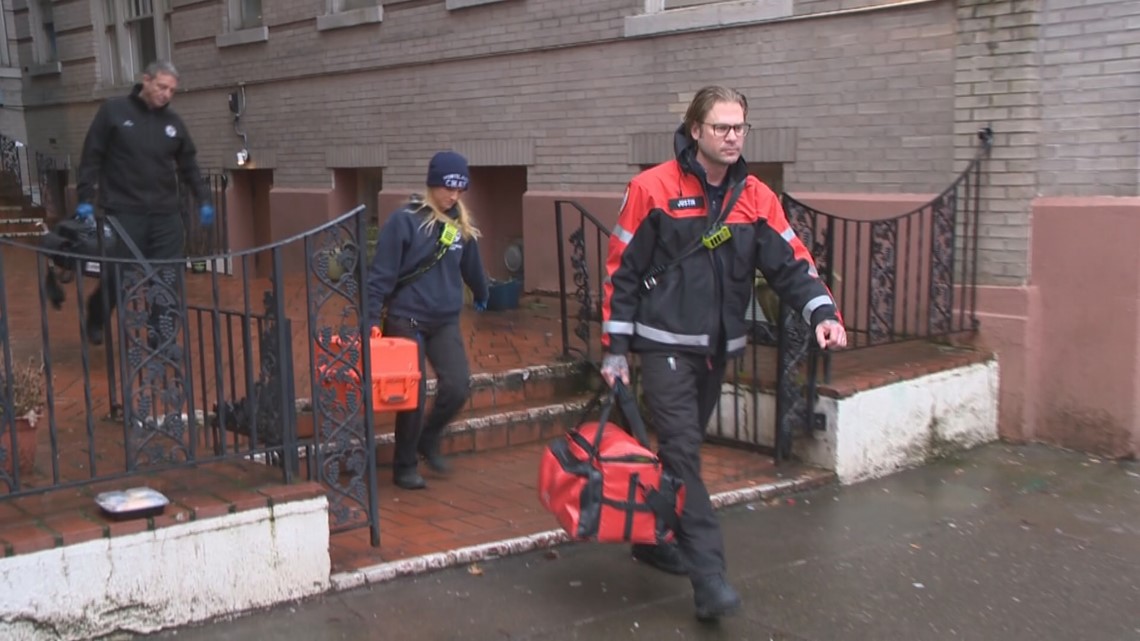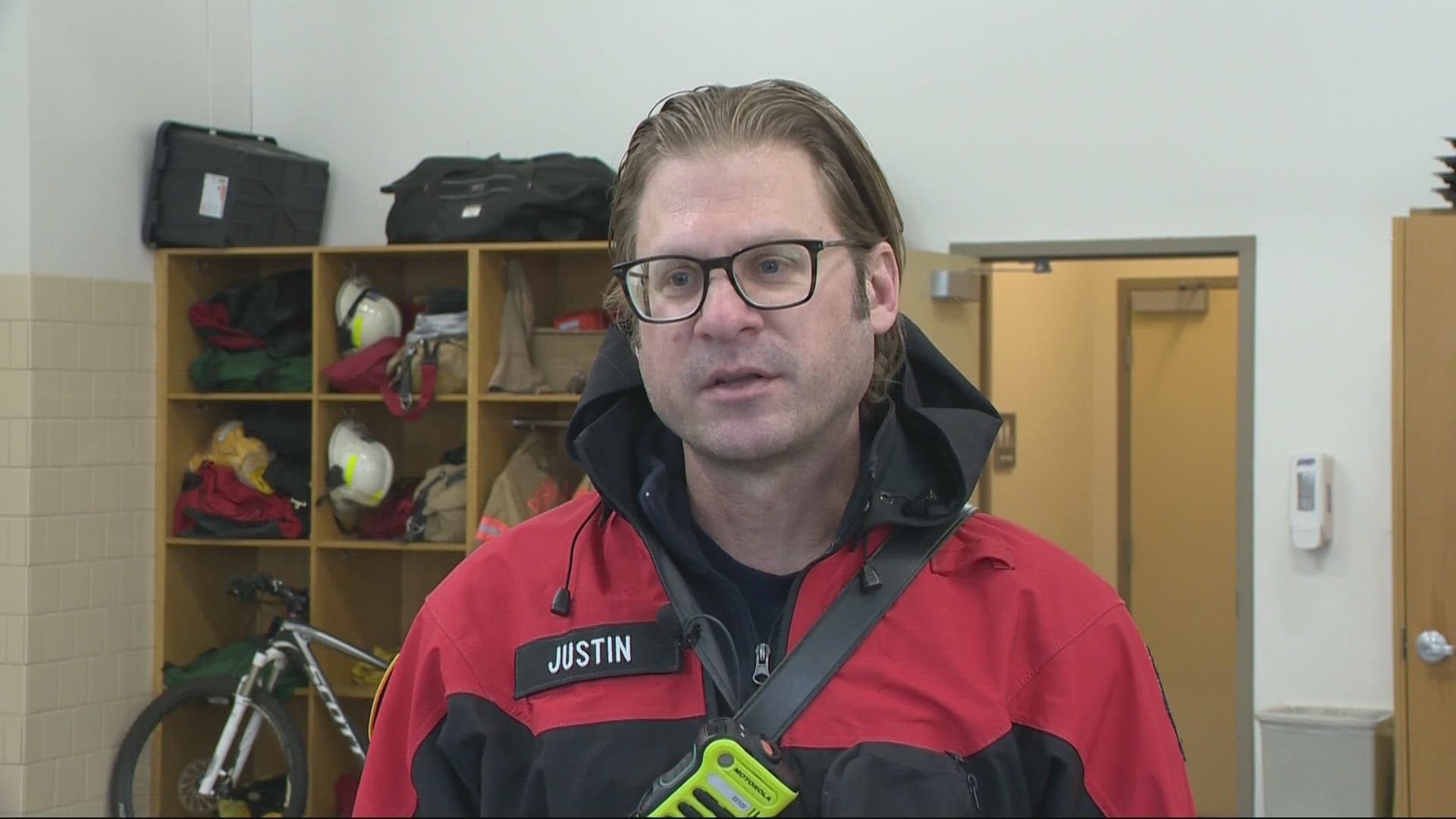PORTLAND, Ore. — The early evening rain picked up as an EMT and paramedic team at Portland Fire & Rescue (PF&R) headed out to patrol the streets of downtown Portland on Thursday, looking for what many people try to ignore.
“We’re coming into this with a different mindset,” said Justin DeJesus, a paramedic and member of PF&R's new overdose response team based out of Fire Station One.
DeJesus and EMT Mandy Boynton scanned the sidewalks, looking for people who look like they could have overdosed.
“There’s been a lot of drive-by happenstance overdoses that we’ve come up upon,” Boynton said.
They are headed to Old Town, a neighborhood they describe as a hotspot. They are part of a pilot project that launched about a month ago. They work 10-hour days, four days a week responding to overdoses instead of firefighters.
“I think it’s what the city needs in a more appropriate resource,” Boynton said.


A man slumped under a blue sleeping bag caught Boynton’s eye on Southwest 5th and Harvey Milk. They circled the block, only to watch him stand up and shuffle away with the sleeping bag still draped over his head.
“He could be dosed appropriately, and he’s gotten the high that he wanted, but you want to make sure that they’re breathing,” Boynton explained as they kept driving.
Two overdose calls came in both were in deep Southeast Portland, which is outside their response zone, so firefighters went instead.
“Hopefully we’re kind of proving our worth in this and then if we can make an expansion for some other areas that we know could use some relief from the overdose response team,” Boynton said.


Typically, they go to about 10 overdoses a day in downtown Portland. Thursday afternoon was particularly slow.
“It always makes me a little nervous when it’s oddly quiet,” Boynton said.
She explained that it’s a sign of a lull in drug supply and said she expected the number of overdoses to increase any hour.
“Looking at the clock, it’s a little after 4 o’clock. Justin and I are only on until 5:30. We have to have our rigs back and restored by 6 p.m. and so that just means if a bunch of overdoses start happening, we’re not on to help relieve crews; that’s just a weight all of us carry,” she said.
Not long after, an overdose call came in. It was close by on Southwest Salmon Street inside an apartment building.
“This building here in particular lately has had a lot of drug addicts around,” said Rosie Edwards, who was waiting outside for a friend.
A man had overdosed on drugs but didn’t say which kind.
“We did end up administering a low dose of Narcan,” Boynton said. “We allowed that to take effect and then we had the ambulance crew come in and he came to and decided to decline going to the hospital despite us advising him to go to the hospital.”


Boynton spent about 10 minutes with the man who had overdosed. It was nearing the end of their shift, yet they knew once they clocked out, the crisis would only continue.
“They’re happening everywhere at all hours all the time just because we go home doesn’t mean that overdoses and emergencies stop,” Boynton said.
While their hours are limited, the program is growing in other ways. Next week, they’ll start to offer people who have overdosed with a drug that helps lessen withdrawal symptoms. A follow-up team will also be able to connect them with addiction services, if they are available and if the person who overdosed is willing to accept the help.

